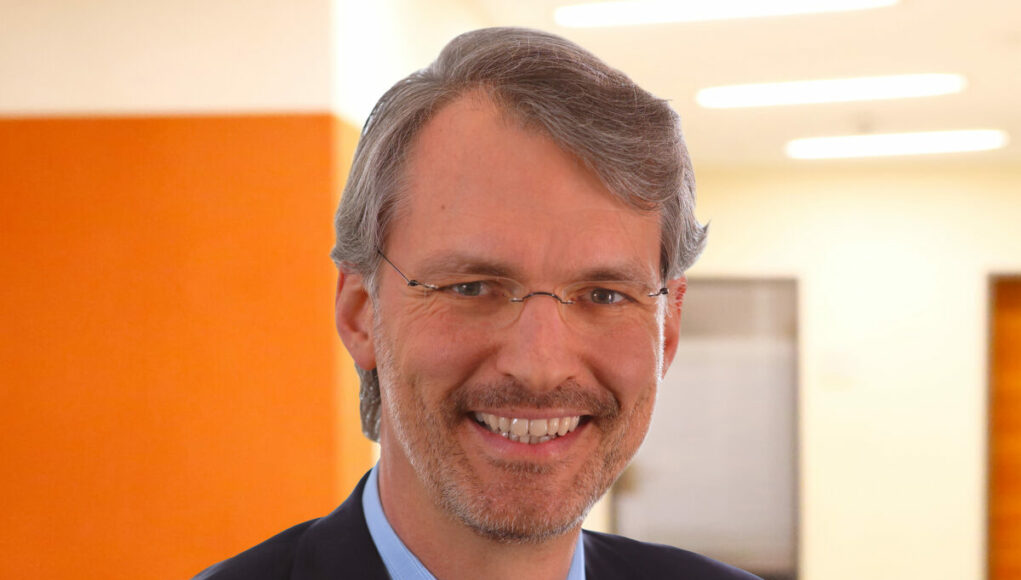INSIGHT by Helge Wulsdorf, Head of Sustainable Investments at the Bank for Church and Caritas eG (BKC)
| Investments with a clear ethical compass of values
Sustainable investments are characterised by various thematic approaches and implementation strategies. The 17 Sustainable Development Goals (SDGs) adopted by the United Nations in 2015 now form the basis for an understanding of sustainability. Even if the global sustainability aims of the UN 2030 Agenda cannot be translated one-to-one into sustainable investment criteria, they represent a suitable substantive framework for the creation of ESG criteria for sustainable investment products. There are also asset owners who endorse a clear ethical value orientation and who want to have this implemented in their capital investments. In addition to foundations and family offices, this mainly includes investors from the church, Caritas and Diakonie.
The many responsibilities, services and facilities of the church are there to serve the people. The basis for the clear meaning of church work is its Christian value orientation, which should be reflected in the holistic work of the church and thus in its capital investments. “Money has to serve, not to rule”, Pope Francis has repeated several times. This principle applies to all church investors; after all, for the sake of their credibility, they do not want to and must not become sponsors of ethically controversial business practices. The stated goal of the church is to harmonise the use of income and the generation of income as much as possible. The churches have therefore been dealing with the consequences and effects of investments for some time. The considerations of the Protestant and Catholic churches in Germany are expressed, for example, in two documents that are relevant to church investments: in the “Guide to ethical and sustainable investment in the Protestant church” and in the orientation guide of the Catholic church in “Making ethically-sustainable investments”.
| Christian value orientation as a foundation
Because of their long experience, both churches know only too well what money can have positive and negative impacts.
‘Money is not neutral. It always expresses moral attitudes and basic convictions, for whose effects asset owners and managers always bear joint responsibility.’
The churches, in particular, stand in the social perception for concrete values that determine their work. The two papers therefore serve as an ethical value compass for your financial investments. The deliberately chosen term ethical and sustainable investments on both sides shows that the churches apply sustainable ESG investment criteria based on the ethical basis of Christian values. In doing so, they are aware that, like all other financial players, that they also carry out their weighing-up and decision-making processes under the conditions of the capital market, in the area of tension between what is ethical, what is financially justifiable and what is feasible by sustainability research.
The churches name three approaches in their papers with which they want to implement sustainability from a Christian perspective in their investments. 1. Exclusions, 2. Positive / negative screening and 3. Engagement. Exclusions include basic sustainability issues such as labor and human rights violations, capital punishment, armaments, addictive substances, destructive environmental behavior, green genetic engineering, fossil fuels, corruption and unfair business practices etc. Positive / negative screenings are intended to identify those investment objects that better meet specified sustainability criteria than others. With commitment, the churches try to urge companies to become more sustainable through the exercise of voting rights or through dialogue with them or states and other investment objects. The quality of ethically sustainable investment strategies of church investors depends on the precise interplay of the different approaches of ethically sustainable investments.
| Minimise financial risks and take advantage of sustainability opportunities
Since sustainable implementation strategies are not an end in themselves for the churches, they are not only interested in implementing any sustainability approaches. The fiduciary administration of entrusted church assets makes it imperative to face up to the resulting responsibility on the capital market and to be aware of the various effects of different investment approaches. Exclusions are intended to prevent negative effects on sustainable development and to secure one’s own reputation as a value-based ethical investor. Screening approaches can have positive effects on specific sustainability requirements and at the same time take advantage of the financial opportunities of a higher risk-adjusted return. Engagement activities aim to change attitudes towards sustainability requirements for investments.
‘Financially speaking, sustainability in the investment for the churches has proven to be a strategic risk approach with which both their performance and reputation risks can be minimized.’
Church investments involve a design mandate that the churches in particular take on with the Protestant and Catholic church banks. At the beginning of this century, the church banks launched common ethically-sustainable fund products, thereby demonstrating that the ethically-sustainable dimension offers qualitative added value without losing sight of the other goals of capital investment. The Bank for Church and Caritas was the first church bank to switch its own investments to sustainability and since then has been offering all of its own financial products sustainably.
| The churches as thought leaders
Church investment is not a “special case”. It is just as anchored in the capital market as the other products and services. If it can be shown to make a positive contribution to sustainable development, it will have to be measured against the SDGs. They are also important starting points for the ethical and sustainable investment of the churches. The high level of differentiation of the SDGs with its numerous sub-goals enables the global objectives to be transformed into concrete social-ecological investment criteria, which include violations of labor and human rights, environmental standards, unfair business practices, peace and climate protection. As seen, these are largely compatible with the Christian values for ethically sustainable investment criteria. In this respect, the ethical and sustainable investments of the churches can prevent negative effects on the global goals of sustainable development and promote positive ones.
It turns out that the churches are already thought leaders when it comes to ethically motivated sustainable investments. The findings and experiences of the churches will continue to enrich the discussion about sustainable finance in general and value issues in the financial sector in particular. For the churches, investing as one of their fields of action also always creates meaning and identity. Therefore, as “effective capital” they must not run counter to their values. Like foundations and family offices, the churches as value-oriented investors know that there is no such thing as a value-free investment. With their clear ethical value compass, they, like other value-oriented investors, can give important impulses to the service function of money for the sustainable development of people, society and our world.
| about the author
Dr. Helge Wulsdorf is the
〉Head of Sustainable Investments at Bank for Church and Caritas (Bank für Kirche und Caritas) eG since 2003
〉Board Member at Forum Nachhaltige Geldanlagen (FNG, industry association promoting sustainable investment in Germany, Austria and Switzerland)
〉Member of the Sustainable Finance Advisory Board of the German government
| All opinions expressed are those of the author. investESG.eu is an independent and neutral platform dedicated to generating debate around ESG investing topics.









